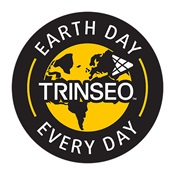Walter van het Hof, Global Industry Affairs, Public Policy & Sustainability Reporting Leader
 |
We rely on governing and regulatory bodies to make decisions and policies that protect our health and environment while mitigating negative impacts to society. However, in recent years, we have seen a concerning trend where these bodies are not always utilizing a solid foundation of science in policymaking, and instead are relying on an emotion-driven approach to policymaking. These kinds of trends can have widespread impact on people, industries and economies. We need balanced data to guide our decisions so we can deliver impactful results that do not have a negative effect throughout industries and society overall. Otherwise, our reactive policies could have harmful long-term consequences for the economy, environment and society. |
Standardizing Sustainability
The anticipated changes to the European Corporate Sustainability Reporting Directive (CSRD) and the U.S. Securities and Exchange Commission (SEC) are helping to standardize how we report sustainability data, so we can accurately compare sustainability initiatives and results. Existing frameworks have helped move us in this direction, but they do not set forth legally required language for things like circularity and recycling.
With standardized language, we can make equal comparisons about environmental impact across industries through accurate, sound data. This provides more transparency for sustainability reporting and shows opportunities for improvement.
This perspective should be adopted for how we scientifically approach regulations. By adopting a scientific position that mirrors the processes taken for sustainability reporting, we can drive more data-driven policies. This could help us harmonize how companies are approaching sustainability innovation and reporting on it. This will not only establish an overarching approach to sustainability that allows for accurate comparisons, but it will also help to reduce greenwashing.
Delivering Scientific Results
By using this standardized, scientific approach to study all chemicals, we do not take a one-size-fits-all position.
The American Chemistry Council (ACC) is outspoken about taking this type of approach. This can be seen in the organization’s discussions on per- and polyfluoroalkyl substances (PFAS), which are a large and diverse family of chemicals. There are more than 12,000 types of PFAS and the ACC has a unique analogy for how we think about PFAS—berries. Some PFAS are dangerous to human health and the environment, similarly to how some berries are poisonous. They draw a comparison to other berries, such as blueberries or raspberries, that are safe for humans. They compare these to the PFAS that are intrinsic to essential items we use every day such as cell phones and tablets, airplanes and vehicles, and medical devices.
With a scientific approach, we can make informed decisions about banning chemicals that are dangerous and appropriately utilizing those that are safe. But we need accurate, unbiased data to make these determinations to avoid a negative impact on our environment, economy and society.
With continued customer and consumer demand for sustainable action, we need to look at the true impact of regulations. If we take an emotionally driven approach, we risk causing more harm to the environment, economy and society. Instead, we should take the same scientific process that is being utilized for sustainability reporting, which would synchronize innovation and communication. When we take this approach, we can all be winners and do what is best for our planet and our communities.

